Exploring the large ancient waterways of the Ly Dynasty
Friday, 15/03/2013 22:35 (GMT+7)
(CPV) - In 2012, the Thang Long - Hanoi Heritage Conservation Center and the Institute of Archaeology coordinated to excavate 500m2 to the the north Doan Mon - Thang Long royal citadel ruins. An unexpected finding in the process of excavation has stunned the scientific researchers.
A 4.2m thick layer of sediment held the remnants of many architectural monuments from the Ly, Tran, Le and Nguyen periods, but underneath that lay an ancient waterway, oriented east to west, from the Ly Dynasty. This find is of unprecedented size in the archaeological history of Vietnam. There are many initial assumptions about this waterway, including the hypothesis that it is the remnant of aquatic systems related to the spiritual feng shui elements of a power centre, bringing longevity and prosperity for the kingdom, court and country.
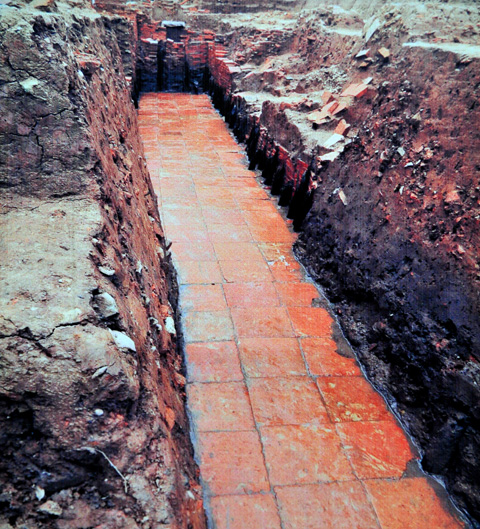 |
|
The "giant" waterline stunned the world of scientific researchers |
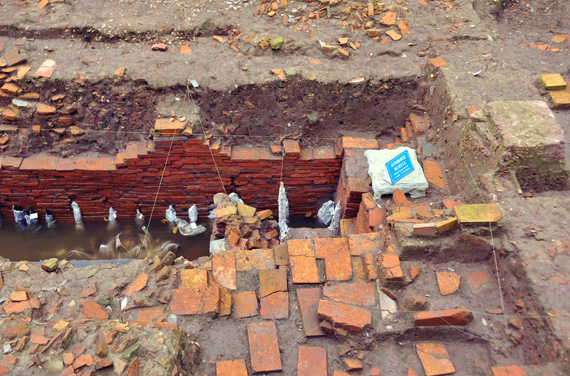 |
|
The waterway traces related to the Ly Dynasty, with feng shui elements
incorporated underneath the remains of architectural monuments
from the Tran, Le and Nguyen Dynasties |
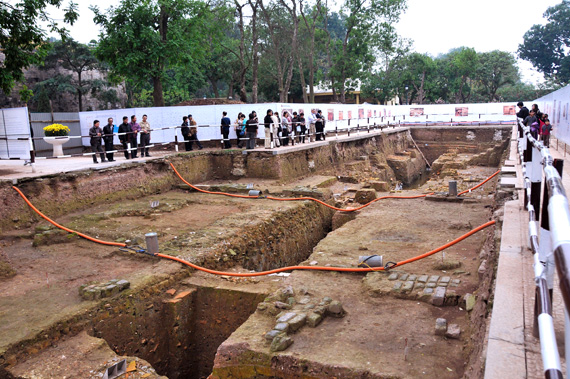 |
|
Events revealing the waterline trace of the Ly Dynasty received great
attention from the world of scientific researchers |
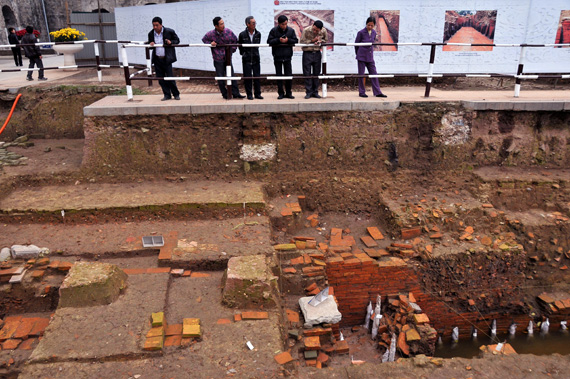 |
|
... as well as tourists |
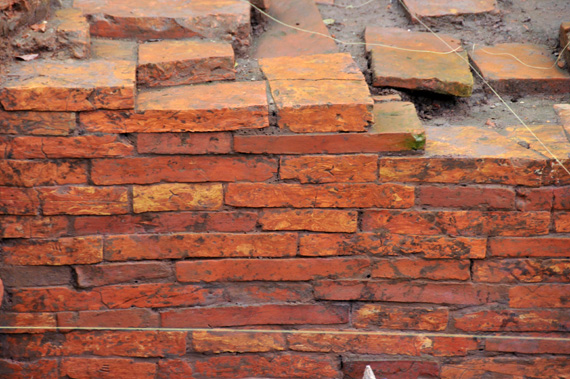 |
|
The banks of citadel were made of polished tiles (50x50x6cm). It is
surprising that even after so much time and upheaval, the red tiles remain |
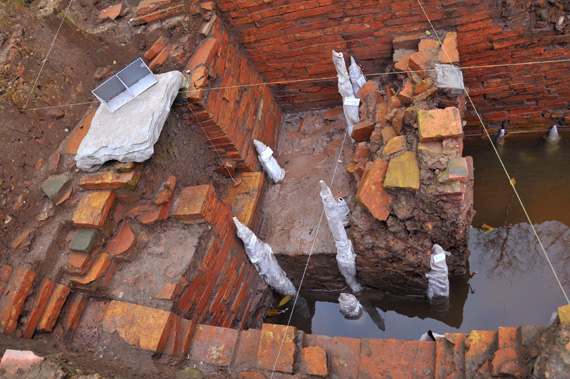 |
|
The tiles are still neat and tight, with a solid feel like a new building.
This proves the terracotta tile technique of the Ly Period
was quite advanced |
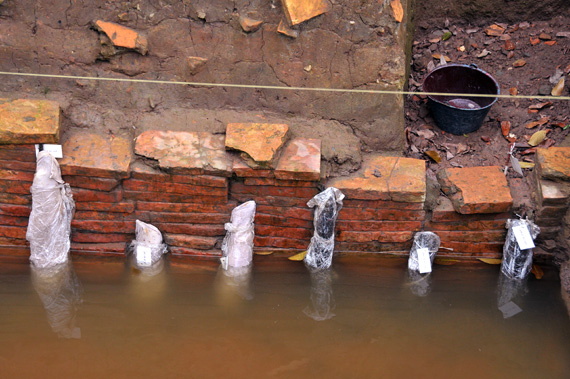 |
|
Wooden poles used to consolidate two banks of the citadel... |
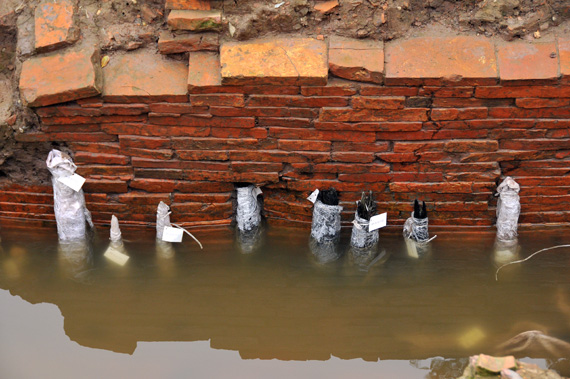 |
|
... In spite of pressure from the rocks, clay and gravel covering the top
of the pile, they still maintain their original position |
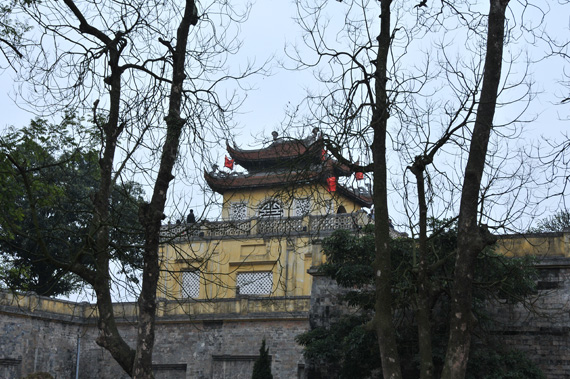 |
|
Imperial Citadel of Thang Long - the ancient thousand years magnificent
has now become the 900th World Heritage of Humanity with great
historical and cultural value |